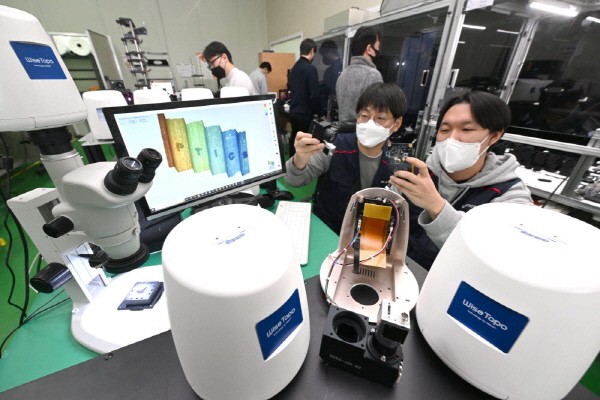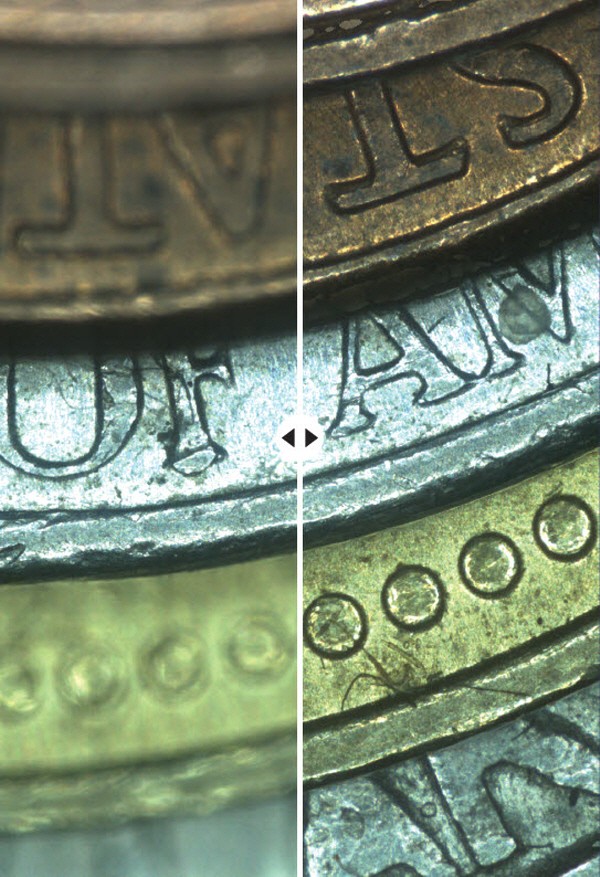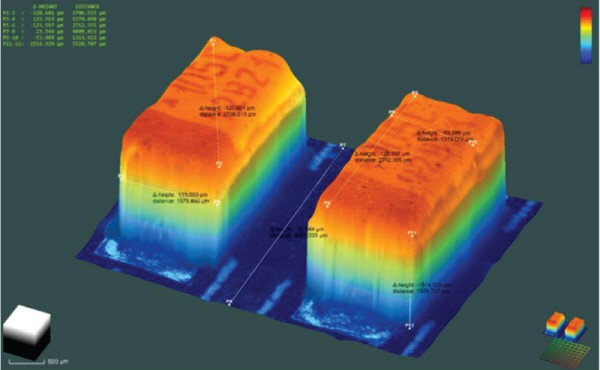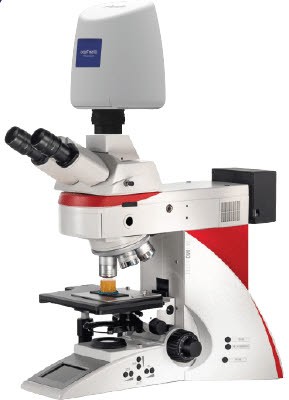Application of ultra-high varifocal lens technology
Emerging as an alternative to expensive 3D microscopes
Releasing this month at Photonics West

A Korean company has developed an optical module that converts a two-dimensional (2D) microscope into a three-dimensional (3D) microscope. Regardless of the model, by just attaching the module, it will convert them into 3D. It is attracting attention as an alternative to expensive 3D microscopes ranging from tens of thousands KRW to hundreds of millions KRW.
SD OPTICS announced on the 26th that they have developed 'WiseTopo', a 3D digital optical module using MEMS-based lenses.
This product is characterized by overcoming the limitations of 2D microscopes with fixed focus which can used by mounting a module instead of an existing microscope image sensor.
The range recognized as being in focus during shooting is called depth of field (DoF), and 2D microscopes have very limited DoF. The plane can be seen from above, but the exact shape or height change of the object cannot be easily detected. Solving this problem requires refocusing manually or with a Z-axis (height) motor, which is inconvenient and less productive.

The key to SD OPTICS module is to overcome these limitations with their own 'ultra-high-speed varifocal' lens technology. The varifocal lens applied to the module contains thousands of micromirrors. Each micro-mirror moves at a high speed and focuses without any separate Z-axis movement. Through this, 3D images and various data can be extracted. The SD OPTICS variable focus lens has also been applied to the digital 3D microscope (Visioner 1) of Carl Zeiss, a world-renowned optical company.
SD OPTICS products also adopted 'C-mount' as a fixed mount standard required when removing the existing microscope image sensor and mounting the module, enhancing versatility. Since many microscopes adopt this standard, SD OPTICS products can be used regardless of the brand model.
In addition, they provide functions including △Depth of field expansion function △Real-time 'all-in-focus' that focuses in all areas △'Fast auto focus' that automatically focuses on the desired area △Real-time 'multi-focus lock' function that maintains focus even when the sample is moved.

With the high-speed 3D scan function, users can see the object as a more intuitive 3D shape image. Real-time comparison with existing designed 3D data is also possible by using software (SW) independently developed by SD OPTICS. Various 3D functions can be linked with virtual reality (VR) and augmented reality (AR) devices, enhancing user convenience.
SD OPTICS plans to unveil their products at the world's largest optics exhibition 'Photonics West 2023' to be held at the end of this month and begin to target the market in earnest. Demand for 3D replacement of existing 2D microscopes is the target. As of last year, the optical microscope market was estimated at 2.6 billion USD (about 3.2 trillion KRW). Among them, 2D microscopes account for more than 70%.
SD OPTICS’ Vice President Kyung-Suk Jeong said, “It is an innovative technology that can evolve existing 2D microscopes into high-priced 3D microscopes, and we are proud to build the foundation for popularization of 3D microscopes. We plan to upgrade performance and functions so that we can target the bio microscope market in the future.”

By Reporter Dong-jun Kwon <djkwon@etnews.com>